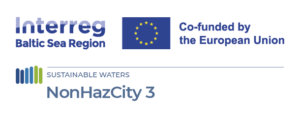Each Federal State in Germany has own strategy how to dispose the expired or unused pharmaceuticals. Formerly common practice to bring unused pharmaceuticals to the local pharmacy is not the case anymore, as since 2009 the pharmacies are no longer obliged to accept the medicaments back.
Nowadays most of the states recommend to throw the medicaments into the mixed household garbage, in case if it is being incinerated. But there are also many other disposal ways including special waste collection points, recycling yards, hazardous substances collection cars, pharmacies on voluntarily basis etc. Different disposal practices confuse in the population and lead to the typical mistakes like throwing the medicaments to the sewer.
More than 150 different pharmaceutical substances have already been found in surface and ground waters in Germany, which poses significant risks for aquatic organisms.
- About 47% of the German population at least occasionally pours unused liquid pharmaceuticals into the toilet or drain
- About 20% of the German population at least occasionally throws unused solid pharmaceuticals into the toilet or drain
BEF Germany in cooperation with the Ministry of Environment and Energy of Hamburg and Hamburg Water (company responsible for the treatment of sewage waters and provision of drinking water) address this topic and launch an information campaign in Hamburg. Currently the survey is being conducted in order to indicate the disposal behaviour in Hamburg, gaps in information, main target groups to be addresses etc. The extensive awareness raising activities will be started in autumn and will take place in coming 12 months. The target groups will be reached through pharmacies, doctors, city cleaning and garbage disposal services, Hamburg Water etc.
The population of Hamburg will learn about the correct way to dispose pharmaceuticals locally, the occurrence of pharmaceutical substances in waters, and potential environmental effects.

